Listen to the MP3 audio file
The Solari Report – 11 June 2009
Download the MP3 audio file
This is the second week of the month. That means I am headed over to Westpoint, Tennessee on Thursday, June 11th, to join Franklin Sanders for dinner. Susan Sanders is taking a local emergency preparedness course this week, so Franklin and I are on our own. I will be bringing a fine bottle of Silver Oak cabernet sauvignon to console us.
A lively dinner discussion will be followed by our monthly precious metals update by bridge call for this week’s Solari Report.
I will start by covering recent news in Money & Markets and your latest questions in Ask Catherine. Then Franklin and I will address developments in the precious metals market, including:
- the wide diversity of opinion about where we are headed this year (the price of gold is going to $1200 says some experts, no it is going to $450 per oz. says others);
- the large and growing commercial short positions;
- the indictments at the Liberty Dollar; and
- traveling with gold coins (see FAQs below).
At a subscriber’s request, we will also separate fact from fiction in the official descriptions of the Federal Reserve System, by responding to the points in “Debunking the Federal Reserve Conspiracy Theories.”
In our Let’s Go To the Movies we will be talking about that wonderful comedy Other People’s Money with Danny DeVito playing the Wall Street character “Larry the Liquidator” and what is says for opportunities to understand and address local economic challenges.
If you are a subscriber to The Solari Report, you can post your questions at your private panel or feel free to also post them at this blog post. If you would like to learn more about The Solari Report and subscribe, click here.
View this week’s Money & Markets Charts.
FAQs – Traveling with Gold Coins
With summer upon us, we are getting more questions about traveling with gold coins. Here are some of the questions and answers from the U.S. Customs & Border Protection website FAQs.
May I bring Gold coins, medals, and bullion into the United States?
Gold coins, medals, and bullion may be brought into the U.S. However, under regulations administered by the Office of Foreign Assets Control, such items originating in or brought from, Cuba, Iran, and Sudan* are prohibited entry.
Copies of gold coins are prohibited if not properly marked by the country of issuance. The importation of counterfeit coins is prohibited.
There is no duty on gold coins, medals or bullion, however, if the value of the gold coins is over $10,000, it must be declared to a CBP officer and must be reported on the FinCen 105 form
What constitutes “Negotiable Monetary Instruments” for currency reporting requirements?
Negotiable monetary instruments that must be reported by travelers or persons sending or receiving them (other then by electronic means by a banking concern) are:
Coin or currency from the U.S. and/or other countries, including gold coins; Travelers Checks; Checks, promissory notes or money orders that can be cashed by the bearer. This includes checks or money orders made out to someone other than the bearer that are endorsed without restriction (i.e. for deposit only.), and incomplete checks, money orders, promissory notes that are signed but on which the name of the payee has been omitted (the “To” line is left blank); Securities or stocks in bearer form. Monetary instruments that are made payable to a named person but are not endorsed or which bear restrictive endorsements are not subject to reporting requirements, nor are credit cards with credit lines of over $10,000.
Gold Bullion is not a monetary instrument for purposes of this requirement. You can obtain the currency reporting form FinCen 105 form or more information.
Traveling with monetary instruments,currency, checks, etc. , do I have to pay duty?
Customs and Border Protection (CBP) does not collect duty on currency. However, travelers leaving or entering the U.S. are required to report negotiable monetary instruments (i.e. currency or endorsed checks) valued at $10,000 or more on a “Report of International Transportation of Currency or Monetary Instruments” form FinCen 105 form
You can obtain the form in advance and download it from here FinCen 105 form, or a CBP officer can give it to you upon your departure or return to the U.S.
Failure to declare currency in amounts of over $10,000 can result in its seizure.
Information on the FinCen 105 form is provided to the IRS, and they determine whether or not the importation of monies constitutes income subject to taxation.
The requirement to import currency on a FinCen 105 form does not apply to imports of gold bullion.





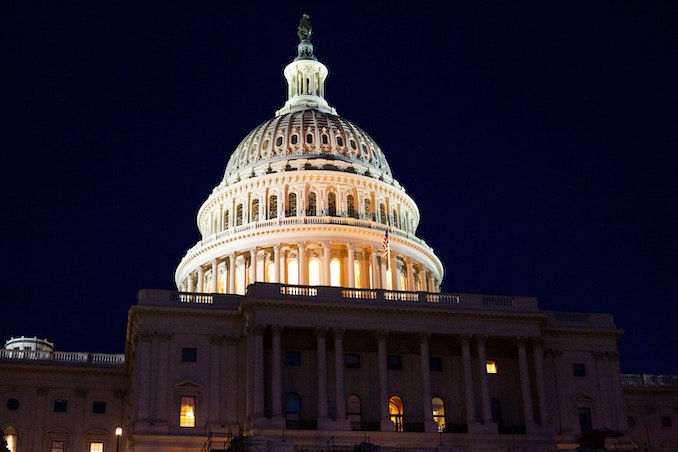

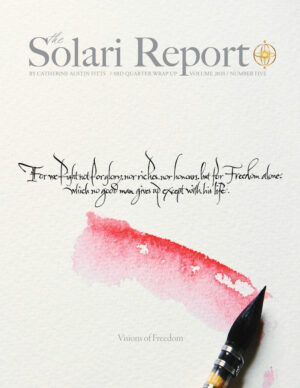 3rd Quarter 2020 Wrap Up: Visions of Freedom (104 pages)
3rd Quarter 2020 Wrap Up: Visions of Freedom (104 pages)  Working Successfully with State Leaders Who Will Take Responsibility (20 pages)
Working Successfully with State Leaders Who Will Take Responsibility (20 pages) 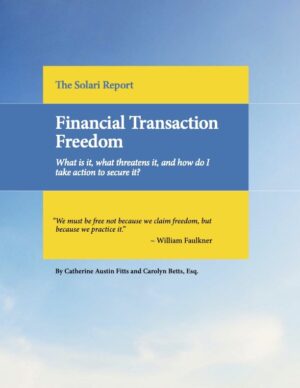 Financial Transaction Freedom (14 pages)
Financial Transaction Freedom (14 pages)  3rd Quarter 2023 Wrap Up: The “AI Revolution”: The Final Coup d’Etat? (88 pages)
3rd Quarter 2023 Wrap Up: The “AI Revolution”: The Final Coup d’Etat? (88 pages) 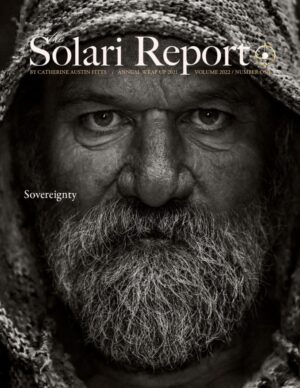 2021 Annual Wrap Up: Sovereignty (232 pages)
2021 Annual Wrap Up: Sovereignty (232 pages)  Women in Art (254 pages)
Women in Art (254 pages) 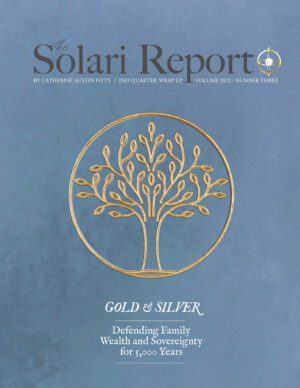 2nd Quarter 2022 Wrap Up: Gold & Silver: Defending Family Wealth and Sovereignty for 5,000 Years (200 pages)
2nd Quarter 2022 Wrap Up: Gold & Silver: Defending Family Wealth and Sovereignty for 5,000 Years (200 pages)
How does the Fin Cen form 105 view US gold eagle coins with a legal tender value of $50/oz. Do you use the “market value” or the “legal tender value” to determine the $10,000 reporting threshold? It is the difference of around 10 oz or 200 oz.
Larry
QUESTION: IN CAPITALS RE GOLD COINS AND BULLION SEEMS CONTRADICTORY—Coin or currency from the U.S. and/or other countries, INCLUDING GOLD COINS?; Travelers Checks; Checks, promissory notes or money orders that can be cashed by the bearer. This includes checks or money orders made out to someone other than the bearer that are endorsed without restriction (i.e. for deposit only.), and incomplete checks, money orders, promissory notes that are signed but on which the name of the payee has been omitted (the “To” line is left blank); Securities or stocks in bearer form. Monetary instruments that are made payable to a named person but are not endorsed or which bear restrictive endorsements are not subject to reporting requirements, nor are credit cards with credit lines of over $10,000.
GOLD BULLION IS NOT ? a monetary instrument for purposes of this requirement. You can obtain the currency reporting form FinCen 105 form or more information.
THANKS,
Ahhh, for a taste of that home-grown beef…
Ellen Brown, in the fascinating book ‘Web of Debt’ as well as the video ‘The Money Masters’ make, what seems to me, a great case for debt-free ‘greenbacks’ as the banking solution rather than a gold standard. What say you and Franklin?
Follow-up question is what is likely in the long run. Is it ‘Digital Gold’ as I suspect? (And the Bible intimates.)
Blessings to you all for your tremendous service to all of us starved for the truth.
Ramsay Devereux
i would imagine (though in no way speaking for Franklin or Catherine) that is a huge judgment call, depending on how circumstances look for both PMs as well as the broader currency, economy, and state of the government near those marks.
temporal proximity will help much more significantly.
remember that these are simply technical historical facts that may or may not play out in the future and are inextricably intertwined with both fundamentals, human psychology, and, the desire and ability of the shadow bankers to heavily manipulate the price.
they may be losing power now, or they may be gaining it, even w/my experience, I really can’t tell. and I NEVER let my guard down in dealing w/the thieves.
that being said, make sure you’re stocking seeds, food, water, and everything else…as well as learning lots of Permaculture (I just went to the Indiana Permaculture Reunion this weekend and it was amazing!!!)! best of luck!
Hi Catherine and Franklin,
In a previous Precious Metals update, Franklin had discussed a strategy of trading the gold and silver ratio… Today on kitco I see the ratio at 62.93. I believe Franklin said the upcoming swap for silver into gold would be at 57 1/2, 50, 43 and 38.
My question should what portion of my silver should I swap at the 57 1/2 mark or should I just wait until the 50, 43 or 38?
Also does Franklin see a time frame when we will hit these upcoming trade ratios?
Thanks much,
Hans Westphal